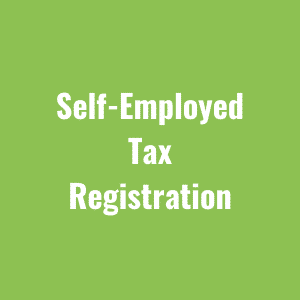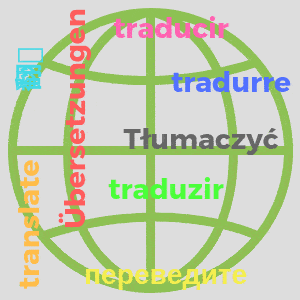Need a Visa for Germany?
Last update: November 2021
Visa Guide for Germany [for 2021]
Covid-19 Pandemic [Important!]
Due to the coronavirus pandemic, restrictions for entry into the EU and Schengen zone from many countries apply.
Check the official website of the Federal Ministry of the Interior and the official website of the European Union to get the latest information and updates on entry restrictions, testing and quarantine regulations in the EU and Schengen Area.
Read the requirements below & fill in the visa application forms at the end of this article.
General Overview
- EU nationals, EEA member states (Liechtenstein, Norway and Iceland) and Swiss nationals do not require a visa to enter the Federal Republic of Germany.
- Citizens from Norway & Liechtenstein (EEA member states) can live, work and study in Germany without any visa & residence permit restriction.
- Citizens from Iceland (EEA member state) & Swiss nationals can also live, work and study in Germany without applying for a visa but, once in Germany, they may apply for a residence permit at the Ausländerbehörde in their town of residence.
- Non-EU nationals, generally speaking, require a visa for stays in Germany.
- A visa is not required for semi-annual visits of up to 90 days for nationals of those countries for which the European Community has abolished the visa requirement. Make sure to check the list below to see who needs an entry visa and who doesn't. Also, some of those nationals who can enter Germany without a visa are allowed to apply for a residence permit whilst in Germany and some others aren't and have to do so in their home countries:
»» Overview of visa requirements and exemptions ««
- Schengen visa (»» Schengen area list ««)
- never issued in Germany
- valid 3 months
- valid for tourism, visiting, business & transit purposes or studies not lasting more than 3 months in a 6 months period.
- EU citizens do not require any kind of visa or permits (»» EU members list ««).
- SAR passport holders (Hong Kong and Macao) have been granted visa-free access or visa-on-arrival for three months in any 6 month period to visit Germany.
Who needs a visa?
Schengen visa:
Non-EU nationals, generally speaking, require a visa to enter Germany (see exceptions here). This short term visa grants in general free mobility within the Schengen Territory for visitors/business/tourist stays of a maximum of 90 days per 180 days of the year.
National visa:
Non-EU nationals wanting to stay longer than 3 months require a National visa to enter Germany (see exceptions here). Embassies generally issue this visa with a maximum validity of 90 days, allowing multiple entries. Shortly after entering Germany, the visa holder must contact the competent local aliens' office (Ausländerbehörde) to convert it into the final residence permit.
Where do you apply for a visa?
As a rule, applicants must submit visa applications, together with all necessary documents, in person at the German mission responsible for their place of residence.
In order to avoid time-consuming requests for additional information or documentation, applicants should consult the website of the respective mission well in advance of their departure date to find out about the visa procedure and about the documentation which has to be submitted.
Find your local German mission here.
Find your local German mission here.
When do you apply for a visa?
Visa applications must be lodged at least 15 calendar days before the intended visit and cannot be lodged earlier than 6 months before the start of the intended visit. You may have to book an appointment before lodging the application.
Time required to process a visa application
As a rule, missions require between 2 and 10 working days to decide on an application for a short-stay visa. Applications for visas entitling the holder to a longer stay or to take up gainful employment may take several months to process.
During the pandemic and the peak travel season, there may be a longer waiting period for making an application to a German mission. Persons requiring a visa to enter Germany should therefore submit their applications in good time.
Categories of visas (depending on length and purpose of stay)
- Short stay visa: a “Schengen” visa (one or multiple entries), allowing the holder to stay in Germany & in the Schengen Territory up to 90 days per 6 months.
- Long stay visa: visas for stays exceeding 90 days are national visas (or D visas) and are issued by member states in accordance with national legislation.
- When applying for a National visa, the German mission abroad would first issue a short-entry visa with the purpose of staying longer. That visa entitles the holder to enter Germany before acceptance of the electronic residence permit.
When in Germany: in order to obtain the residence title, the visa holder must register first with the local "Bürgeramt" and make sure to have health insurance that fulfils the requirements for a residence permit application.
Request a free consultation from an independent insurance broker here. - As a rule, all foreigners require visas for stays of more than 3 months or stays leading to gainful employment. Exemptions apply to EU and EEA (European Economic Area) citizens and Swiss nationals.
- Furthermore, citizens of Australia, Canada, Israel, Japan, New Zealand, the Republic of Korea and the United States of America may apply for a residence permit after entering Germany. See the full list here.
- Citizens of other countries planning a longer stay in Germany must apply for visas at the competent mission before arriving in the country. See the full list here.
- As a result of Regulation 265/2010, it is now possible for anyone in possession of a national visa (visa category D) and a valid travel document to move freely in the Schengen area up to 3 months in any 6 months period.
- Types of D visas: employment visa, EU Blue Card (more details here), family reunion visa, job seeker visa, student visa, visa for researchers, freelancer visa, language course visa, internship visa and medical treatment visa.
- Airport transit (visa category A): required by the nationals of certain countries. You can find more details including a list of countries that need to apply for a transit visa here.
Visa fee and visa fee exemption
Here are the fees for applying for a visa:
- Schengen visa fees: EUR 80
- National visa (type D): EUR 75
The relevant Embassy or Consulate has to be contacted regarding the applied exchange rate and concerning the methods of payment. For some countries and categories of people, fees are waived or reduced. Check those exceptions below:
Health Insurance for your visa application
Health insurance is mandatory for obtaining a short or long term visa and it must meet the following requirements:
- It should have a minimum coverage of at least 30,000 EUR
- It should cover all member states of the Schengen Zone
- It should cover all the following expenses which might arise: repatriation for medical reasons (including in case of death), urgent health attention and hospitalization.
This expat health insurance policy provides the mandatory insurance certificate required when applying for a Schengen visa. It is also valid for applying for a residence permit whilst in Germany. If you find a job in Germany or start at a German university, you can then easily switch to proper public or private health insurance.
If you applied for a German work visa (type D) because you already managed to secure a work contract or a binding job offer, in this case, you will need more than expat health insurance. In this case, you need to take out private or public health insurance. We recommend this independent insurance broker who can smoothly guide you through the German insurance jungle.
What documentation do you need to submit to your German mission abroad?
Schengen visa
- The Schengen visa application form duly completed (in capitals & black color if written by hand) and signed. As the form is available online, the best practice would be to fill in the online application form, print it and sign it.
- Passport, which must be valid for a period of at least 3 months after the applicant’s last day of stay in the Schengen states and not older than 10 years. Please ensure that the passport has 2 blank pages to affix the visa.
- One recent passport-sized photograph in color conform to ICAO standards.
- Proof of payment of the visa fee.
- Round trip reservation or itinerary with dates and flight numbers specifying entry and exit from Germany. Some Schengen authorities accept the itinerary when applying for the visa but request the original air ticket when the visa is collected (please verify).
- Proof of sufficient funds for the duration of stay, (Bank statement of the past three months) (min. amount required is different in each country – please verify with the relevant consular authority - for Germany it is more or less 45€ per day). Cash will not be accepted as proof of foreign exchange.
- Schengen area health insurance: a one-page document stating that the applicant is covered by a Schengen Expat Medical Insurance.
- Accommodation: confirmed hotel reservation is requested (hotel vouchers are not necessarily proof of confirmed hotel booking). If the applicant is staying with a relative or friend, the relevant authorities may request an invitation letter from the host with a copy of his passport or ID. Authentication of this document by the relevant authorities may be requested. In case of a pre-paid tour please provide us details of the tour with proof of payment to the tour operator.
- For business: an official business letter from a company in a Schengen state as well as from the employer stating the purpose of the visit must be presented. For conferences: proof of registration and payment.
- Children under 18: unabridged birth certificate. If the child is traveling alone: certified parental consent by both parents. If the child travels with only one parent, the other parent must produce the notarized/certified consent. If only one parent has guardianship of the minor, the relevant court documents must be presented. Certain consular authorities require that both parents sign in the presence of a consular official.
- The Schengen State’s Consular offices reserve the right to request further documentation should they deem it necessary, such as:
- Proof of employment: (e.g. letter from the company stating monthly wages, continuing employment after a period of leave and duration of vacation, etc.)
- If the applicant is a student: letter from school/college/university confirming attendance
- A personal interview with the applicant may be requested at any time.
The complete list of documents can be consulted on the website of the consulate or embassy.
National visa
Please verify with your German mission abroad as this is a case by case situation. It also depends on what category of visa you applied for (i.e. freelancer visa, employment visa, Blue Card, etc).
Application Forms Center

Schengen visa application forms
👉 Apply online for your Schengen visa 👈
Visa application form (for longer stays and/or stays entitling the holder to take up gainful employment in Germany) - The National Visa (type D)
👉 Visit this page 👈Visa application form (for longer stays and/or stays entitling the holder to take up gainful employment in Germany) - The National Visa (type D)
For application forms to be printed (available in other languages)
For other special cases or languages
Verify directly with the German mission in your country.
Important:
- The forms submitted must be original versions in the appropriate language of the mission in question.
- As we are not an immigration agency, we are unfortunately unable to assist with specific visa inquiries. We provide general information on immigration, but for specific queries to your individual situation, you will need to contact the government’s immigration department.
Source: European Union & German Federal Foreign Office





























